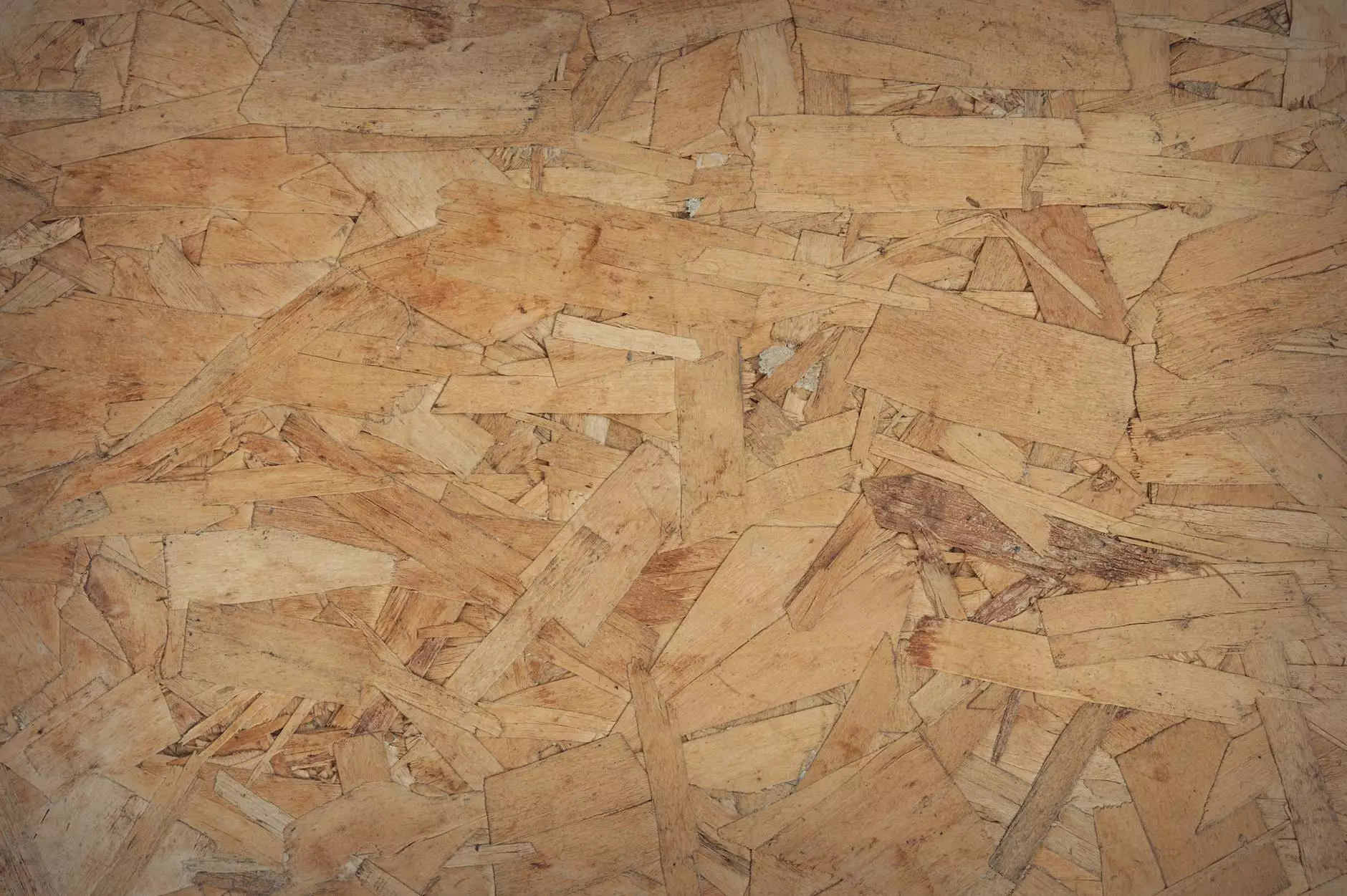Wholesale Timber Supplies: Your Premier Source for Quality Wood

When it comes to construction and woodworking, the importance of high-quality timber cannot be overstated. Wholesale timber supplies provide businesses and individuals alike with an opportunity to procure wood at competitive prices. In this comprehensive guide, we will explore the multitude of benefits associated with buying timber in bulk, the types of wood available, and how to choose the right supplies for your specific needs.
Understanding Wholesale Timber Supplies
Wholesale timber supplies refer to the procurement of timber and wood products in large quantities, typically at a reduced price compared to retail. This purchasing model is particularly advantageous for businesses engaged in construction, renovation, or furniture manufacturing, as it allows for significant cost savings and ensures consistent quality across projects.
The Advantages of Buying Timber in Bulk
Opting to buy timber in bulk through wholesale suppliers comes with several advantages, including:
- Cost Efficiency: Purchasing large quantities of timber typically reduces the per-unit cost, enabling businesses to maximize their budget.
- Availability: Wholesale suppliers often have a vast inventory, ensuring that you can find the specific type and grade of timber you need.
- Quality Consistency: When you source timber from the same supplier, you can maintain consistent quality across your projects, which is crucial for customer satisfaction.
- Better Networking: Establishing a long-term relationship with a wholesale supplier can lead to improved terms, discounts, and access to exclusive products.
- Convenience: Having a reliable source for bulk timber can simplify the procurement process, allowing you to focus more on your core operations.
Types of Timber Available in Wholesale
Wholesale timber supplies encompass a wide range of wood types, each suited for different applications. Here are some popular categories:
1. Softwood
Softwood is obtained from coniferous trees and is widely used in construction and manufacturing. Common types of softwood include:
- Pine: Known for its versatility, affordability, and ease of workability, pine is commonly used in framing, flooring, and furniture.
- Spruce: With a fine, even grain, spruce is used for a variety of applications, including musical instruments and utility poles.
- Fir: Known for its strength and stability, fir is often used in structural applications.
2. Hardwood
Hardwoods come from deciduous trees and are typically denser than softwoods, making them ideal for furniture and flooring. Popular hardwoods include:
- Oak: Renowned for its durability and strength, oak is a popular choice for furniture and flooring.
- Maple: With a fine, smooth grain, maple is often used for cabinetry and high-end furniture.
- Cherry: Valued for its rich color and fine grain, cherry wood is a favorite for quality furniture.
3. Plywood and Engineered Wood
These products are manufactured from layers of wood veneer, providing strength and stability while minimizing waste. Common options include:
- Plywood: Made from layers of wood veneers glued together, plywood is incredibly strong and widely used in construction.
- Particleboard: This cost-effective option is made from wood chips and resin, commonly used in furniture and cabinetry.
Choosing the Right Wholesale Timber Supplier
Selecting the right supplier for wholesale timber supplies is crucial for ensuring the success of your projects. Here are some key factors to consider:
1. Reputation and Experience
Research potential suppliers to ensure they have a solid reputation in the industry. Look for companies with experience in providing timber to businesses similar to yours.
2. Product Range
A diversified product range can indicate a supplier's capacity to meet various needs. Ensure they offer the types of timber you require.
3. Quality Assurance
Inquire about the supplier's quality control processes. A reliable supplier should be able to provide documentation of quality standards and certifications.
4. Pricing and Terms
Compare pricing among different suppliers and understand their payment terms. Remember that the cheapest option isn't always the best; consider value, including quality and customer service.
5. Delivery and Logistics
Check the delivery options and timelines. Reliable logistics can streamline your procurement process, ensuring you receive your timber on time and in good condition.
How to Effectively Plan Your Bulk Timber Purchase
To ensure a smooth procurement process for wholesale timber supplies, you need to plan effectively. Follow these steps for successful purchasing:
1. Assess Your Needs
Determine the quantity and type of timber required for your projects. Having a clear understanding will help you avoid over-ordering or running short.
2. Budget Wisely
Create a detailed budget that accounts for the cost of timber, delivery fees, and any additional expenses. This will guide your purchasing decisions.
3. Build Strong Relationships
Foster good relationships with your suppliers. Communicate your needs and preferences, and be open to their suggestions, as they can offer valuable insights.
4. Know Seasonal Trends
Timber prices can fluctuate based on seasons and market demand. Being aware of these trends can help you time your purchases for maximum savings.
Sustainability in Timber Sourcing
As the demand for wood products rises, it's essential to consider sustainability in wholesale timber supplies. Choosing suppliers who prioritize sustainable practices can have a positive environmental impact. Look for suppliers who offer:
- FSC-Certified Timber: The Forest Stewardship Council (FSC) ensures that timber is harvested responsibly, maintaining ecological balance.
- Reclaimed Wood: Using reclaimed wood reduces the demand for new timber and promotes recycling.
- Innovative Sourcing Practices: Suppliers who invest in sustainable practices often have a lower impact on the environment.
Conclusion: The Future of Wholesale Timber Supplies
As the construction and woodworking industries continue to evolve, the demand for quality wholesale timber supplies will only increase. By buying timber in bulk, businesses can secure competitive prices and maintain quality integrity across their projects. Remember to choose reputable suppliers, plan your purchases effectively, and prioritize sustainability in your sourcing practices. Partner with eksidtechug.com for all your timber needs and experience the benefits of high-quality supplies at bulk prices.
By harnessing these elements, businesses in the construction sector can stay ahead of the competition, ensuring that their projects are built on a foundation of quality timber. The right approach to wholesale timber supplies opens up doors not only for cost efficiency but also for building a better, sustainable future.



